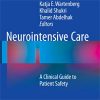Haloperidol Efficacy to Decrease Delirium Burden in Critically Ill Patients
ccforum.biomedcentral.comThis trial, that was stopped early, did not show evidence that haloperidol reduces delirium and coma in critically ill patients with delirium.
The beneficial effects on some agitation-related outcomes and lower sedative requirements reported in a clinical trial are novel, clinically relevant and in line with clinical use.
Together with some other signals of possible benefit in not previously reported (secondary) outcomes, these findings argue for additional effectiveness research of haloperidol for ICU delirium.
This multi-center randomized double-blind, placebo-controlled trial aiming to assess the effect of haloperidol on DCFDs within 14 days after randomization was preliminarily halted, per DSMB advice upon planned interim analysis because of futility of reaching the predefined difference of one day in DCFDs.
Our primary findings are in line with the MIND-USA and AID-ICU trial. However, the EuRIDICE trial differs from these prior trials in that it specifically assessed delirium outcomes related to agitation, which have not been previously reported in a therapeutic setting.
Fewer haloperidol-treated patients required the use of a benzodiazepine, suggesting a benzodiazepine-sparing effect with haloperidol.
Albeit non-significantly, other predefined secondary outcomes showed the same direction: study drug, rescue haloperidol, atypical antipsychotics and alpha-2 agonists use was lower in haloperidol-treated patients.

















